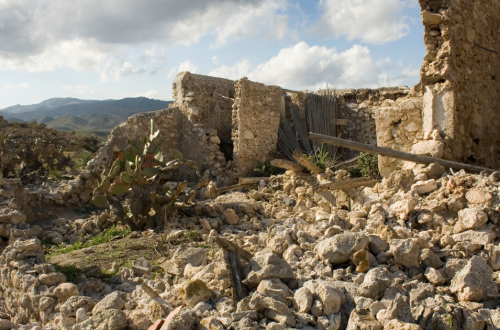
Lament and the Longest Night
My church holds mid-week services during Advent. They can vary in structure and scope—sometimes they are more celebratory. Sometimes contemplative. Then one is usually about lament, called the Longest Night service, because here in the northern hemisphere, the longest, darkest night of the year happens in Advent, a few days before Christmas.
For most of my Christian life I’ve resisted lament. In my youth I believed things could end well. I had a safe, secure childhood without much trauma. I had plans and goals and didn’t think much of lament.
Then life happens. It happened to me, and likely it happened to you. We know loss of people, loss of dreams, maybe loss of health. We live in a world where God’s justice hasn’t been fully realized. Yes, sometimes what happens here isn’t fair.
All of this accumulates, and we have to put that disappointment and hurt and doubt somewhere. We can tuck it away and pretend it doesn’t exist, that life as a Christian is mostly perfect, but we can’t do that forever. Eventually the hardship of our lives demands some kind of reckoning.
God knows this. God knows his beloved children live in a sinful, broken world. He allows the tares grow in with this wheat to protect us all until the time is right for harvest. He knows we get weary and heartsore, and we need to acknowledge that, even with the Creator God on our side, life can hurt.
So he gave us laments. The Psalms are full of lament, writers who admit life is hard and sometimes God doesn’t make sense. There’s a whole book called Lamentations. Not only does God allow us to grieve and hurt and admit our pain, but he gave us specific words to use if our own words fail us.
Lament and Advent–the power of Hope
Last night was the Longest Night service for 2023, and we read from Psalm 42. Check out verses 9-11a:
I say to God my Rock,
“Why have you forgotten me?
Why must I go about mourning,
oppressed by the enemy?”
10 My bones suffer mortal agony
as my foes taunt me,
saying to me all day long,
“Where is your God?”
11 Why, my soul, are you downcast?
Why so disturbed within me?
As a person who struggles with anxiety, who doesn’t always experience pure joy, it’s comforting to know I can bring my laments to God. Life doesn’t work out like I wanted. I doubt anyone’s does. But we have words straight from God’s hands and heart to let us call out to him in our distress.
The psalm doesn’t end there. Most songs of lament in the Bible don’t end there. Here’s the tail end of verse 11: Put your hope in God,
for I will yet praise him,
my Savior and my God.
Hope. God lets us lament because he wants to restore us with hope. He makes many promises to Israel about a beautiful future. Through Jesus he set the course for that future to happen, a kingdom where the hardships of this world will fall away.

Last night the man who led our service assured us that there are no easy answers for the whys of pain and suffering and evil. But God calls me to cry out our sorrow, not hide it. He calls for me to come close to him and cling to him when it hurts, the way a child with a skinned knee climbs into the arms of a loving parent.
And ultimately, he calls us to hope. In the end, the world will be put right. For now, we wait. That’s the heart of Advent, the waiting.
Light in the darkest darkness
I love the idea of laments during this season of light and joy. It’s a reminder to keep it real. Yes, Christmas is the beginning of the greatest story the world has ever known, when God sent his son and the redemption story ramped up to an amazing end.
But Jesus himself wept. Jesus himself knew the brokenness of the world. That means I can dance for joy at the redemptive plans but also weep in sorrow for the heartache along the way.
So can you. Feel free to lament. God will draw close and wrap you in his arms while we all wait for the next steps in God’s plans.
Writer John Eldredge, in his book The Journey of Desire, suggested we all make time for two daily practices, worship and grief. I admit I should do more of both, but I fight grief. Instead of pushing down my hurts and doubts and questions, I can and should bring them up to God. Tears were good for Jesus, so tears are good for me.
A voice of old
I’ll close us with a quote from Martin Luther and a *list of some of the Psalms of lament. Take some time to ponder God’s great love in giving us these words in the hardship of this life.
What is the greatest thing in the Psalter but this earnest speaking amid the storm winds of every kind? . . . Where do you find deeper, more sorrowful, more pitiful words of sadness than in the psalms of lamentation? There again you look into the hearts of the saints, as into death, yes, as into hell itself. . . . When they speak of fear and hope, they use such words that no painter could so depict for your fear or hope, and no Cicero or other orator has so portrayed them. And that they speak these words to God and with God, this I repeat, is the best thing of all. This gives the words double earnestness and life.
Word and Sacrament, Luther’s Works, vol. 1, ed. E. T. Bachmann. Philadelphia: Fortress, 1960, pp. 255–56.
Psalms of individual lament: 3, 5–7, 13, 17, 22, 25-28, 32, 38, 39, 42, 43, 51, 54-57, 59, 61, 63, 64, 69–71, 86, 88, 102, 109, 120, 130, and 140-43.
Psalms of communal lament: 44, 74, 79, 80, 83, and 89
*The list of Psalms comes from https://yalebiblestudy.org/courses/psalms/lessons/psalms-of-complaint-study-guide/




